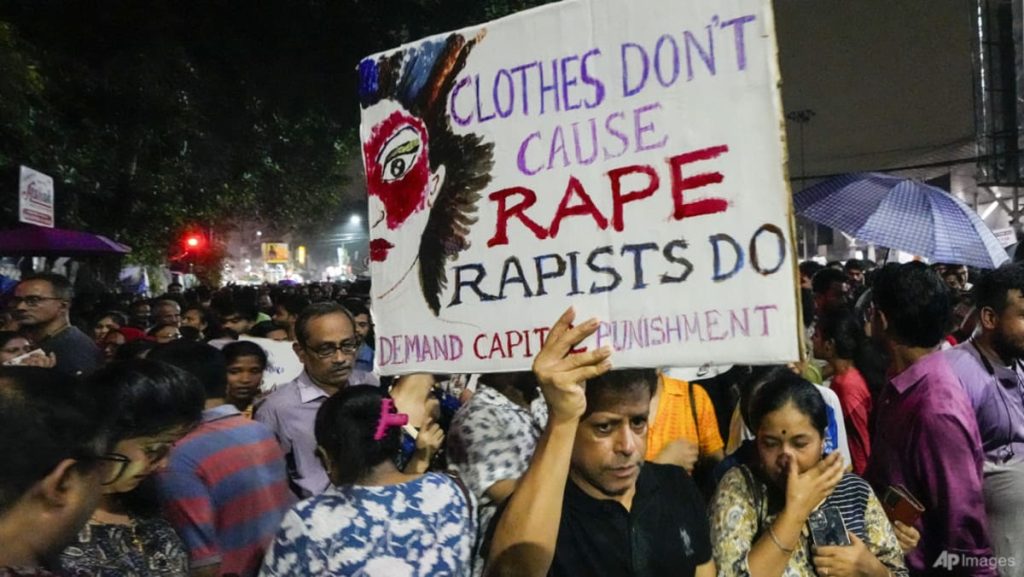The recent murder of a doctor in a teaching hospital in India has sparked outrage and protests, with her parents suspecting that she was gang-raped before her death. Police have detained a man who worked at the hospital, but they have been accused of mishandling the case. In response to the public outcry, Kolkata’s High Court transferred the case to the Central Bureau of Investigation (CBI) in order to restore public confidence in the investigation process. A mob of angry citizens stormed the hospital grounds, damaging property and clashing with police in protest of the handling of the case.
The incident has brought to light the pervasive issue of sexual violence against women in India, with an average of nearly 90 reported rapes per day in the country. Many have drawn parallels between this case and the infamous 2012 gang rape and murder of a young woman on a Delhi bus, which sparked massive protests and led to reforms in laws related to sexual violence. The victim of the Delhi bus rape became a symbol of the country’s failure to address this issue and prompted the government to introduce harsher penalties for rapists and new sexual offences.
The brutal nature of the attack on the doctor in the teaching hospital has reignited the conversation around sexual violence against women in India and the need for continued efforts to combat this pervasive issue. The protests and public outcry following the incident reflect the ongoing frustration and anger over the lack of progress in addressing gender-based violence in the country. Lawmakers and officials have condemned the violence and vandalism that occurred during the protests, while also acknowledging the legitimate concerns and demands of the doctors and citizens who are calling for justice for the victim.
The transfer of the case to the CBI is a step towards ensuring a fair and transparent investigation into the murder of the doctor, as well as addressing the larger issue of sexual violence in India. The government and law enforcement agencies are under pressure to take swift and decisive action to prevent such heinous crimes from recurring and to bring the perpetrators to justice. The echoes of the Delhi bus rape and the subsequent reforms serve as a reminder of the need for continued vigilance and advocacy in the fight against sexual violence and gender-based discrimination in India. The victim’s parents’ quest for justice and the public outcry over the incident highlight the importance of addressing this critical issue and working towards a safer and more equitable society for women in India.


